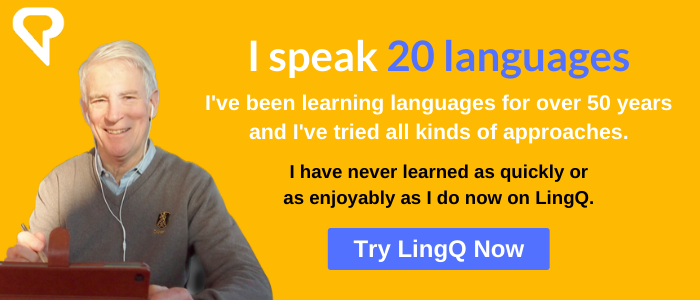how long does it take to become a cop
Language is overwhelmingly dependent on three factors: the attitude of the learner, the time the learner spends with the language, and the learner's attentiveness to the language.
So given that this is the case, if we assume a positive attitude and reasonable and growing attentiveness to the language on the part of the learner, how much time should it take to learn a language?
It is not easy to answer this question since there are so many factors that can influence the amount of time required to learn a language. These can include the methods used, but also the attitude of the learner as explained above. In other words, does the learner like the language, feel confident that he or she can learn it, believe in the method being used etc.?
One organization with lots of learners has made an estimate of the time required to learn different languages.
How Long to Learn a Language According to the FSI

The FSI, US Foreign Service Institute, divides languages into groups of difficulty for speakers of English:
Group 1:
French, German, Indonesian, Italian, Portuguese, Romanian, Spanish, Swahili
Group 2:
Bulgarian, Burmese, Greek, Hindi, Persian, Urdu
Group 3:
Amharic, Cambodian, Czech, Finnish, Hebrew, Hungarian, Lao, Polish, Russian, Serbo-Croatian, Thai, Turkish, Vietnamese
Group 4:
Arabic, Chinese, Japanese, Korean
The FSI 5 levels of proficiency
Elementary proficiency
The person is able to satisfy routine travel needs and minimum courtesy requirements. I have to admit that I have never found this minimum level really works that well beyond saying hello and asking for the bathroom.
Limited working proficiency
The person is able to satisfy routine social demands and limited work requirements. This is a limited ability to converse and really only a step towards real fluency.
Minimum professional proficiency
The person can speak the language with sufficient structural accuracy and vocabulary to participate effectively in most formal and informal conversations on practical, social, and professional topics. This is the first level that is useful in real situations. This probably corresponds to B2 on the European Framework of Reference. This is what I always aim for.
Full professional proficiency
The person uses the language fluently and accurately on all levels normally pertinent to professional needs. This is nice if you can achieve it but takes a long time.
Native or bilingual proficiency
The person has speaking proficiency equivalent to that of an educated native speaker. This is rare.
On this scale, I would call limited working proficiency above basic conversational fluency .

FSI research indicates that it takes 480 hours to reach basic fluency in group 1 languages, and 720 hours for group 2-4 languages.
If we are able to put in 10 hours a day to learn a language, then basic fluency in the easy languages should take 48 days, and for difficult languages 72 days. Accounting for days off, this equates to two months or three months time. If you only put in five hours a day, it will take twice as long.
Most of us don't have 10 hours a day to spend, so it will take longer. Furthermore, if we don't have 10 hours a day, we are better to focus on activities that we like doing and that are easy to organize, like listening and reading, using a system like LingQ, for example. But let's look at what a 10 hour day of language study might look like.
If you were to study a language 10 hours a day…
Is ten hours a day reasonable to learn a language? It could be. In order not to burn out, it is important to vary the activities.
Here is a sample day:
8-12: Alternate listening, reading and vocabulary review using LingQ, Anki or some other system.
12-2: Rest, exercise, lunch, while listening to the language.
2-3: Grammar review
3-4: Write
4-5: Talk to an online tutor or with locals if in the country
5-7: Rest
7-10: Relaxation in the language, movies, songs, or going out with friends in the language. depending on availability.
To some extent the language needs time to gestate and often things we study today do not click in for months. On the other hand, intensity has its own benefits. I have no doubt that someone following this intense program, or something similar, would achieve basic conversational fluency in two months for easy languages, and three months for difficult languages.

So if you don't have that much time, I would encourage you to focus on input-based learning, with a lot of listening during dead time, time when you are doing other tasks, washing the dishes, driving your car, walking, working out etc..
This first stage is important in order to get a grasp of some basic vocabulary and a sense of how the language works. It also gives us the confidence that we can move on to fluency. During this first stage we are curious about the language and willing to listen to the same content over and over.
Repetitive listening is an excellent way to get used to a new language. Whatever content you listen to, and I recommend point of view stories like the Mini-Stories at LingQ, make sure you also have access to the transcripts so that you can learn the vocabulary.
To go from level 2 to level 4, or full professional fluency would take quite a bit longer, perhaps twice as long for easier languages and four times as long for the more difficult languages.
Learning Languages on LingQ to Achieve Fluency Faster
Immersing yourself in a new language doesn't require you to travel abroad or sign up for an expensive language program. You can find lots of material to listen to and read at home. However, it can be a time-consuming to find interesting content. You will also benefit from an efficient way of looking up new words and phrases and keeping track of them.
That's why there's LingQ, a language app that helps you discover and learn from content you love. You can start with the repetitive "mini-stories" and other beginner content and then move on to things of interest to you.
You can import videos, podcasts, and much more and turn them into interactive lessons. Keep all your favorite content stored in one place, easily look up new words, save vocabulary, and review.
LingQ is available for desktop as well as Android and iOS. Create an account today and gain access to thousands of hours of audio and transcripts.
Want free access to my FREE 10 Secrets to Language Learning Success email course? Sign up here! This could be day one on your journey to fluency in a new language.
how long does it take to become a cop
Source: https://blog.thelinguist.com/how-long-should-it-take-to-learn-a-language/
Posted by: morrowhavour.blogspot.com

0 Response to "how long does it take to become a cop"
Post a Comment